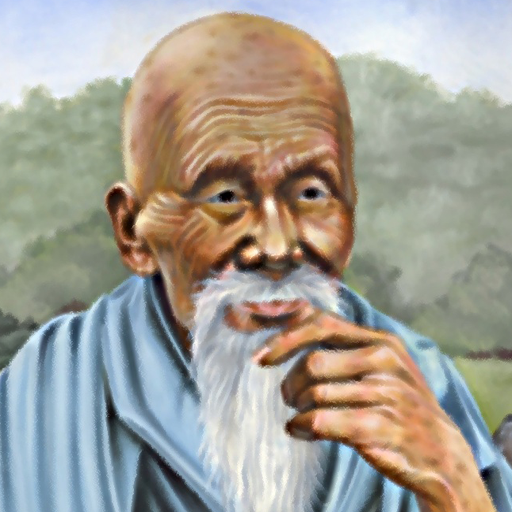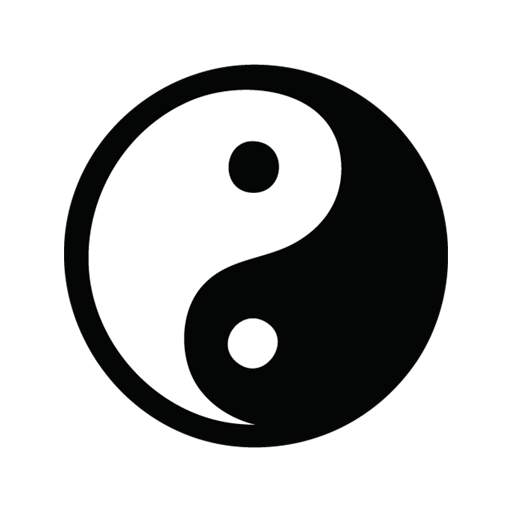

Taoism, Lao Tzu & Tao Te Ching
图书与工具书 | H Mobile
在電腦上使用BlueStacks –受到5億以上的遊戲玩家所信任的Android遊戲平台。
Play Taoism, Lao Tzu & Tao Te Ching on PC
Looking for Lao Tzu quotes? Want to know more about Taoism and Tao Te Ching (Dao De Jing in Hanyu pinyin or 道德經 in Chinese)? Then this is the app for you!
Laozi (Chinese: 老子; pinyin: Lǎozǐ; Wade–Giles: Lao Tzu; also romanized as Lao Tse, Lao Tu, Lao-Tsu, Laotze, Laosi, Laocius, and other variations) was a mystic philosopher of ancient China, best known as the author of the Tao Te Ching (often simply referred to as Laozi). His association with the Tao Te Ching has led him to be traditionally considered the founder of Taoism (pronounced as "Daoism"). He is also revered as a deity in most religious forms of Taoist philosophy, which often refers to Laozi as Taishang Laojun, or "One of the Three Pure Ones".
Laozi is an honorific title. Lao (老) means "venerable" or "old", such as modern Mandarin laoshi (老师), "teacher". Zi (子), Wade-Giles transliteration tzu, in this context is typically translated "master". Zi was used in ancient China as an honorific suffix, indicating "Master", or "Sir". In popular biographies, Laozi's given name was Er, his surname was Li (forming Li Er, 李耳) and his courtesy name was Boyang. Dan is a posthumous name given to Laozi, and he is sometimes referred to as Li Dan (李聃).
According to Chinese traditions, Laozi lived in the 6th century BCE. Historians variously contend that Laozi is a synthesis of multiple historical figures, that he is a mythical figure, or that he actually lived in the 5th-4th century BCE, concurrent with the Hundred Schools of Thought and Warring States Period.
A central figure in Chinese culture, both nobility and common people claim Laozi in their lineage. He was honored as an ancestor of the Tang imperial family, and was granted the title Taishang xuanyuan huangdi, meaning "Supreme Mysterious and Primordial Emperor". Xuanyuan and Huangdi are also, respectively, the personal and proper names of the Yellow Emperor. Throughout history, Laozi's work has been embraced by various anti-authoritarian movements.
This app contains all of Lao Tzu's quotes, wiki on Taoism and Tao Te Ching (Dao De Ching or 道德經) text translated and more will be added when found.
Features of app
-Browse quotes by random or by sequential
-Easy add/remove to favorites
-One click share with facebook, twitter, whatsapp, messaging...(basically all the share apps u have on ur phone)
-Customizable settings for user, including font size, font type, background
Download this app today and enjoy the inspiration of Lao Tzu on your phone!
Laozi (Chinese: 老子; pinyin: Lǎozǐ; Wade–Giles: Lao Tzu; also romanized as Lao Tse, Lao Tu, Lao-Tsu, Laotze, Laosi, Laocius, and other variations) was a mystic philosopher of ancient China, best known as the author of the Tao Te Ching (often simply referred to as Laozi). His association with the Tao Te Ching has led him to be traditionally considered the founder of Taoism (pronounced as "Daoism"). He is also revered as a deity in most religious forms of Taoist philosophy, which often refers to Laozi as Taishang Laojun, or "One of the Three Pure Ones".
Laozi is an honorific title. Lao (老) means "venerable" or "old", such as modern Mandarin laoshi (老师), "teacher". Zi (子), Wade-Giles transliteration tzu, in this context is typically translated "master". Zi was used in ancient China as an honorific suffix, indicating "Master", or "Sir". In popular biographies, Laozi's given name was Er, his surname was Li (forming Li Er, 李耳) and his courtesy name was Boyang. Dan is a posthumous name given to Laozi, and he is sometimes referred to as Li Dan (李聃).
According to Chinese traditions, Laozi lived in the 6th century BCE. Historians variously contend that Laozi is a synthesis of multiple historical figures, that he is a mythical figure, or that he actually lived in the 5th-4th century BCE, concurrent with the Hundred Schools of Thought and Warring States Period.
A central figure in Chinese culture, both nobility and common people claim Laozi in their lineage. He was honored as an ancestor of the Tang imperial family, and was granted the title Taishang xuanyuan huangdi, meaning "Supreme Mysterious and Primordial Emperor". Xuanyuan and Huangdi are also, respectively, the personal and proper names of the Yellow Emperor. Throughout history, Laozi's work has been embraced by various anti-authoritarian movements.
This app contains all of Lao Tzu's quotes, wiki on Taoism and Tao Te Ching (Dao De Ching or 道德經) text translated and more will be added when found.
Features of app
-Browse quotes by random or by sequential
-Easy add/remove to favorites
-One click share with facebook, twitter, whatsapp, messaging...(basically all the share apps u have on ur phone)
-Customizable settings for user, including font size, font type, background
Download this app today and enjoy the inspiration of Lao Tzu on your phone!
在電腦上遊玩Taoism, Lao Tzu & Tao Te Ching . 輕易上手.
-
在您的電腦上下載並安裝BlueStacks
-
完成Google登入後即可訪問Play商店,或等你需要訪問Play商店十再登入
-
在右上角的搜索欄中尋找 Taoism, Lao Tzu & Tao Te Ching
-
點擊以從搜索結果中安裝 Taoism, Lao Tzu & Tao Te Ching
-
完成Google登入(如果您跳過了步驟2),以安裝 Taoism, Lao Tzu & Tao Te Ching
-
在首頁畫面中點擊 Taoism, Lao Tzu & Tao Te Ching 圖標來啟動遊戲




